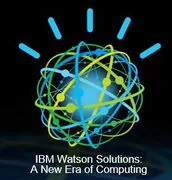Here comes "WATSON' (again?)
Wonder how your message might be perceived by the end user? Perhaps a bit too angry in your emails? Tone Analyzer can help. The IBM Watson™ Tone Analyzer Service uses linguistic analysis to detect three types of tones from text: emotion, social tendencies, and language style.
Emotions identified include things like anger, fear, joy, sadness, and disgust. Identified social tendencies include things from the Big Five personality traits used by some psychologists. These include openness, conscientiousness, extroversion, agreeableness, and emotional range. Identified language styles include confident, analytical, and tentative.
Overview of the Watson™ Tone Analyzer Service
The IBM Watson™ Tone Analyzer Service uses linguistic analysis to detect three types of tones from written text: emotions, social tendencies, and writing style. Emotions identified include things like anger, fear, joy, sadness, and disgust. Identified social tendencies include things from the Big Five personality traits used by some psychologists. These include openness, conscientiousness, extraversion, agreeableness, and emotional range. Identified writing styles include confident, analytical, and tentative.
Users can input email and other written media into the Tone Analyzer service and use the results to determine if your writing comes across with the emotional impact, social tone, and writing style that you want your intended audience to see.
Tone Analyzer Service Use Cases
- Personal and business communications - Anyone could use the Tone Analyzer service to get feedback about their communications, which could improve the effectiveness of the messages and how they are received.
- Market research - Financial advisors and investors could use the Tone Analyzer service to look at the tones reflected in announcements and reports from the companies that they are researching and investing in.
- Self-branding - Bloggers and journalists could use the Tone Analyzer Service to get feedback on their tone and fine-tune their writing to reflect a specific personality or style.
- Automated contact-center agent - If a human client that is interacting with an automated call-center agent is agitated or angry, it is likely reflected in the choice of words they use to explain their problem. An automated agent could use the Tone Analyzer Service to detect those tones, and be programmed to respond to them.
[[[[[[[[[[[[[[[[[[[[[[[[[[[[[[[[[[[[[[[[[[[[[[[[[[[[[[[[[[[[[[[[[[[[[[[[[[[[[[[[[[[[[[[[[[[[[[[[[[[[[[[[[[[[[[
The Science behind the Watson Tone Analyzer and Demo (Technical Meetup) - IBM Watson and Cognitive Computing (San Jose, CA) - Meetup

No comments:
Post a Comment